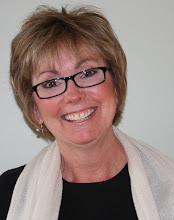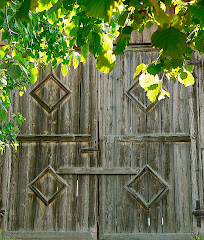

Welcome to my very first blog! It is here that I hope to both share and receive ideas that integrate the teaching of language arts with technology in an effort to build community and provide a voice for ourselves and our students.



"Grown-ups never understand anything by themselves, and it is tiresome for children to be always and forever explaining things to them."The Little Prince, Antoine de Saint-Exupery
I have had the awesome privilege of working with and beside teachers of writing this year. It continually amazed me at what they are willing to do for their students to bring out the writer wrapped up inside each of them. Imagine my joy at hearing my name being called out by Mrs. Bronson's second graders, papers waving in the air, anxious to share what they had done since my last visit with their poetry writing. Or the fifth grader in Mrs. Kalantzis's class who asked on the last day of school if I had received his poem and did I like it (I did and I do!). Still, while I know that this is the true test of a teacher of writing, to create a love for writing with their students, we will all - students and teachers alike - be assessed on our success as it is determined by the writing portion of the state's standardized test, the ISAT.
While I wait for the scores to arrive, I am going to remind myself that children often know more than we adults do when it comes to writing.
Jack, the Kindergarten son of a colleague of mine, said it best. He continued his love of writing into his first digital story. He recently started a new a notebook on the birds he sees in his yard initiated for him by a grown-up neighbor. Jack and his mom will also keep a digital writing notebook this summer. I would say that this writer is well on his way.
Do you think students will ever write; "In November, my favorite Kindergarten activity was ISAT Prep"? No...I didn't think so.





There is much more for me to learn...I am still getting my thinking around Google Docs! Digital Writing Workshop is my new passion and focus for learning. Wish me luck as I take this "on the road" in the district with the teachers I am fortunate enough to work with.

 Greetings again from IRA! I had the privilege of hearing Al Gore speak to the General Assembly this morning. He gave an impressive overview of the history of the written word in relation to critical literacy. "Children need to be able to read in order to think critically to make decisions that affect their own lives," he said. Powerful words and an even more powerful charge to the teachers who were his audience.
Greetings again from IRA! I had the privilege of hearing Al Gore speak to the General Assembly this morning. He gave an impressive overview of the history of the written word in relation to critical literacy. "Children need to be able to read in order to think critically to make decisions that affect their own lives," he said. Powerful words and an even more powerful charge to the teachers who were his audience. Imagine my surprise when I sat down at my first workshop of the conference and saw that I would be in the company of Tony Stead, Sharon Taberski, Gail Boushey and Joan Moser (The Sisters), Gail Saunders-Smith, Seymour Simon, Michael Shoulders and Linda Hoyt! The name of this workshop, Informational Literacy: Making It Intentional, Connected, and Engaging, was what attracted me...didn't read the course selections far enough to see who was presenting when registering!
Imagine my surprise when I sat down at my first workshop of the conference and saw that I would be in the company of Tony Stead, Sharon Taberski, Gail Boushey and Joan Moser (The Sisters), Gail Saunders-Smith, Seymour Simon, Michael Shoulders and Linda Hoyt! The name of this workshop, Informational Literacy: Making It Intentional, Connected, and Engaging, was what attracted me...didn't read the course selections far enough to see who was presenting when registering! I have long struggled with the importance placed on rubrics in the writing classroom. They took off in my district with the adoption of The Six Traits of Writing (NWREL). While the traits (ideas, organization, voice, word choice, sentence fluency, conventions) certainly gave both my students and me a common language with which to discuss their writing, it was not curriculum (a shock to some teachers, I'm sure) or a comprehensive list of the qualities of good writing. I became a reluctant rubric participant in the assessment of my students' writing.
I have long struggled with the importance placed on rubrics in the writing classroom. They took off in my district with the adoption of The Six Traits of Writing (NWREL). While the traits (ideas, organization, voice, word choice, sentence fluency, conventions) certainly gave both my students and me a common language with which to discuss their writing, it was not curriculum (a shock to some teachers, I'm sure) or a comprehensive list of the qualities of good writing. I became a reluctant rubric participant in the assessment of my students' writing.So, my two steps forward have caused me to take a step back and evaluate how to create a safe place for teachers to grow into the 21st Century. I have some ideas...my steps forward are now baby steps.


